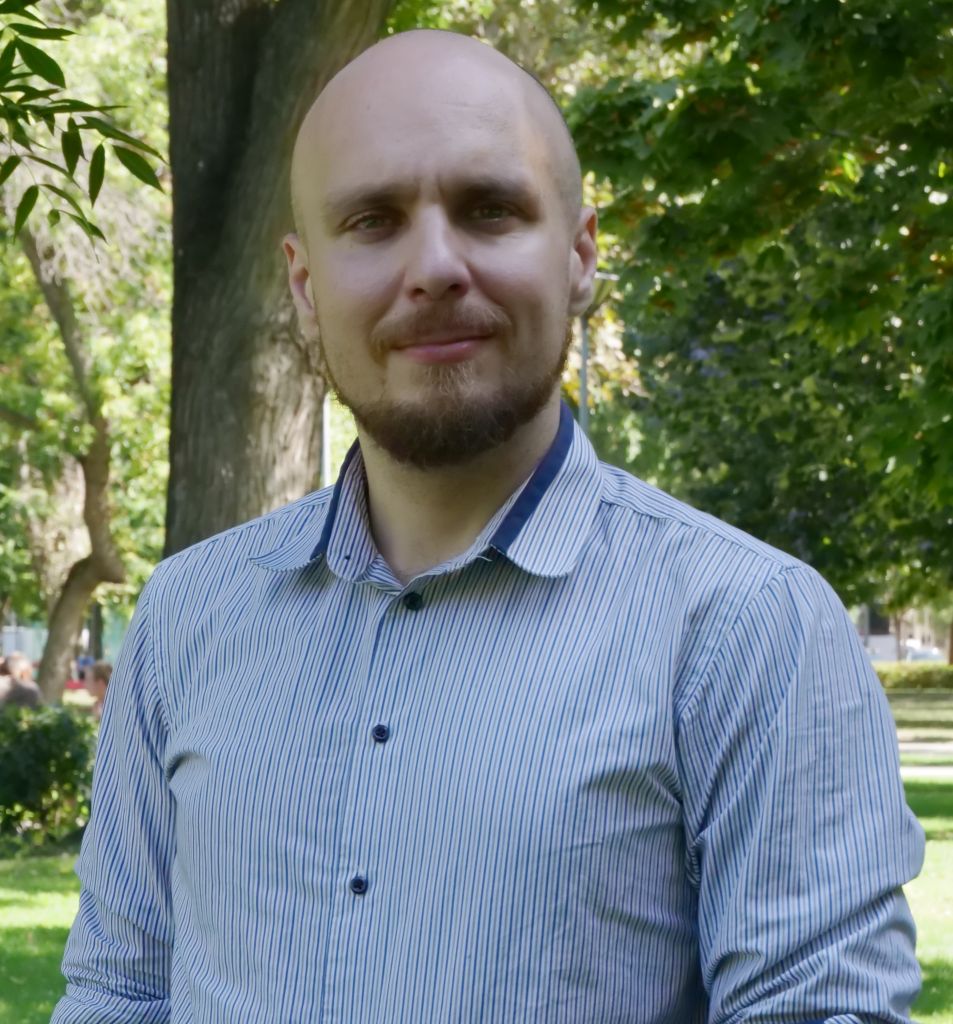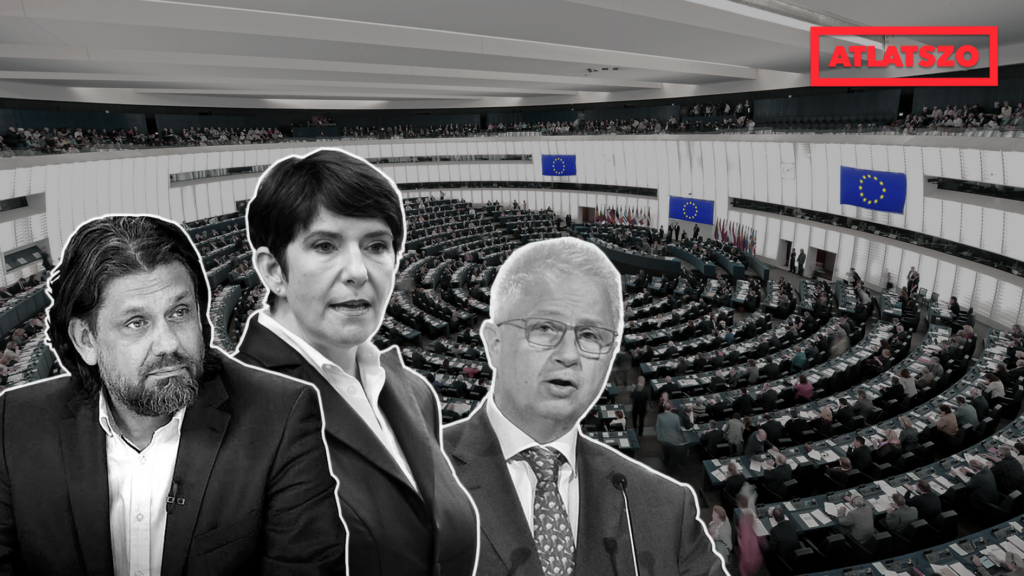The https://english.atlatszo.hu use cookies to track and profile customers such as action tags and pixel tracking on our website to assist our marketing. On our website we use technical, analytical, marketing and preference cookies. These are necessary for our site to work properly and to give us inforamation about how our site is used. See Cookies Policy
Hungarian MEPs featured in Europe-wide misconduct investigation before elections
Hungarian members of the European Parliament feature prominently in the MEP Misconduct Project database, which collects controversial cases involving MEPs. About a quarter of all and half of Hungarian MEPs have been involved in or some form of questionable dealings. In the case of Hungarian MEPs, these were mostly related to Hungarian public funds, as many of them are deeply involved in domestic politics too.
Átlátszó is one of the participants in a Pan-European investigation into the illegal, unethical or otherwise suspicious affairs of current MEPs. In the first round of the research, launched by the Dutch-based NGO Follow the Money, journalists from 20 countries collected cases that had already received press coverage.

The research found that nearly a quarter of MEPs have been involved in problematic cases, ranging from misuse of funds to serious bribery scandals resulting in criminal investigations. However, few cases of abuse have so far led to criminal prosecution. Only around 3 percent of MEPs are currently under investigation, including politicians involved in the Qatargate bribery case.
The 21-strong Hungarian delegation is only a small part of the total number of MEPs, but they are overrepresented in misconduct cases:
more than half of the Hungarian MEPs (13) have been involved in some scandal. The vast majority of these cases are related to domestic domestic politics and public funds, which is not surprising due to the fact that many of them continue to hold public offices at heom even while they are in Brussels.
One of the most common form of misconduct in the European Parliament is the misuse of MEPs’ allowances, such as paying fake staff members and nonexistent offices. None of the current Hungarian MEPs were caught in such case, although one former MEP, Béla Kovács is wanted by the police for such an offence. Kovács however fled to Russia earlier, after he was convicted for spying for Russian intelligence.
Work in Brussels, office in Szentendre
This doesn’t necessarily mean that everything is perfect in regards to the staffs and offices of Hungarian MEPs. When a few years ago, in the framework of the Pan-European MEPs Project, journalists from Átlátszó asked all Hungarian MEPs whether they rented offices from their monthly allowances, most of the 21 MEPs refused to answer.
In Hungary, an investigation has been launched into an office-related offense. As reported by the current mayor of Szentendre, András Gyürk, a Fidesz MEP rented an office to András Gyürk for a fraction of the market price from the previous administration of the small town. At the time, one of the deputy mayors of the town happened to be Dorottya Gyürk, the MEP’s sister. An investigation into the suspected misappropriation of funds has not yet produced any results.
Hungarian parties typically send politicians to Brussels who are already well-entrenched in domestic politics and the intertwined public money deals. Most of the cases we have collected are largely related to Hungarian public funds.
Managing billions of public funds
For example, several MEPs from the ruling Fidesz and KDNP parties have accumulated domestic jobs in addition to their seats in Brussels. Three Fidesz MEPs, for example, have been appointed to the boards of the so-called public interest trusts (KEKVAs), which were handed billions of HUFs worth of public funds, real estate and institutions.
KDNP’s György Hölvényi, for example, became a member of the supervisory board of the Makovecz Campus Foundation, which received the 8,000 square metre Pázmány Péter Catholic University campus in Piliscsaba from the state in 2021, and later 5.4 billion forints of public money from the Prime Minister’s Office. According to his financial disclosure, Hölvényi does not receive any remuneration for his position in the KEKVA – unlike his colleague, Ernő Schaller-Baross, who receives 1 million HUFs monthly wages from board membership of the KEKVA Millenáris Foundation and the publicly funded Otto von Habsburg Foundation. Schaller-Baross is also currently employed by the Orbán government as a ministerial commissioner, although he states that he does not receive any payment for this work.
His salary put Ernő Schaller-Baross on the top list of MEPs with the highest-paying side jobs, along with another Hungarian MEP, László Trócsányi, earns over 3 million HUFs a month as a university rector and professor, and another HUF 1.5 million as a member of the board of trustees of the KEKVA of the University of Szeged.
Before his EP mandate, Trócsányi was head of the Ministry of Justice and was involved in several scandals, including a 2018 case of his own law firm winning state contracts.
This, along with the earlier case involving the extradition of Russian arms dealers, played a role in the EP committee’s rejection of Trócsányi’s appointment as EU Commissioner in 2019, citing conflicts of interest.
Trócsányi is so far the only Hungarian MEP who will not be standing for re-election this year: in January, he announced that he would not stand in the EP elections and would concentrate on his work in education instead of politics.
Tamás Deutsch, who was at the top of Fidesz’s EP list, only listed two sources of income in his financial statement: his MEP salary and his private practice as a lawyer. As side-jobs, he lists top positions in of several Hungarian sports organisations, such as the president of the MTK Budapest sports association, the president of the MTK Hungária FC sports association and the president of the National Association of Sports Organisations. He states that he receives no money for these jobs.
Mr. Deutsch omitted from his statement that he was the prime minister’s commissioner for the Digital Prosperity Program,
which was funded under the EU’s ISA2 EU tender and which was ended in 2022.
The program was implicated in misappropriation, as it was criticized for overpaying pro-government businessmen and organisations for “trivial” work. For example, Szabolcs Kéringer associated with the oligarch Lőrinc Mészáros, received more than 10 million HUFs for writing essays.
Deutsch’s sports organisations, in which he receives no remuneration, also manage substantial public funds. Last year, when the project company that organized the athletics world championships in Budapest gave HUF 664 million in public money to the MTK sports club. At the time, the Budapest 2023 project company was headed by Péter Deutsch, the MEP’s brother.
Long-running scandals
Opposition MEPs have also been caught up in the scandals, related to long-running Hungarian court cases. In 2017, the Hungarian government was ordered to repay 18 billion forints to the European Commission for irregular public procurement related to the introduction of the EMIR digital public procurement system, after the EU found serious irregularities in eight contracts awarded between 2003 and 2009. At the time, opposition MEP Klára Dobrev (wife of former Prime Minister Ferenc Gyurcsány) was responsible for the agenda items relating to EMIR. However, she (or anyone else for that matter) was not questioned by the police as a suspect of crime.
Socialist MEP István Ujhelyi was reported on because of his involvement in the long-running Szeviép case. Before his election as MEP, Ujhelyi had been in contact with the construction company that later went bankrupt, damaging the state and its subcontractors.
During a following lawsuit, the former leader of the Szeviép claimed that Ujhelyi used his political connections to arrange for Szeviép to receive a motorway construction contract from the state in exchange for the renovation of the politician’s house. This was denied by the politician, but it turned out that Szeviép was indeed involved in a construction project involving Ujhelyi’s family.
Written and translated by Zalán Zubor. The Hungarian version of this story is available here.

